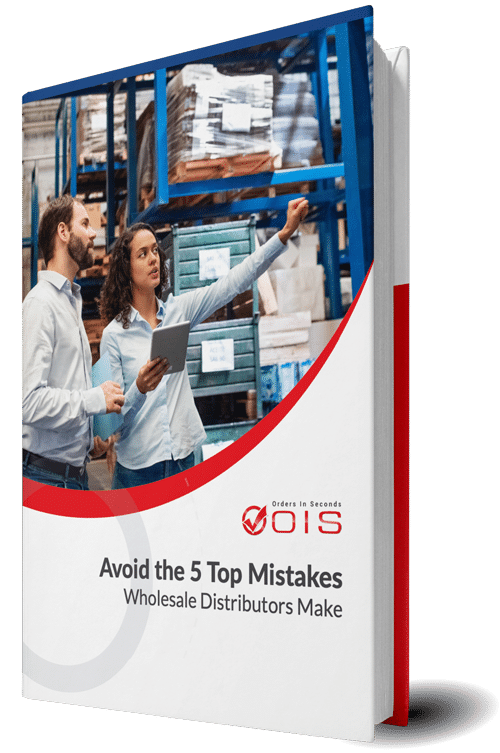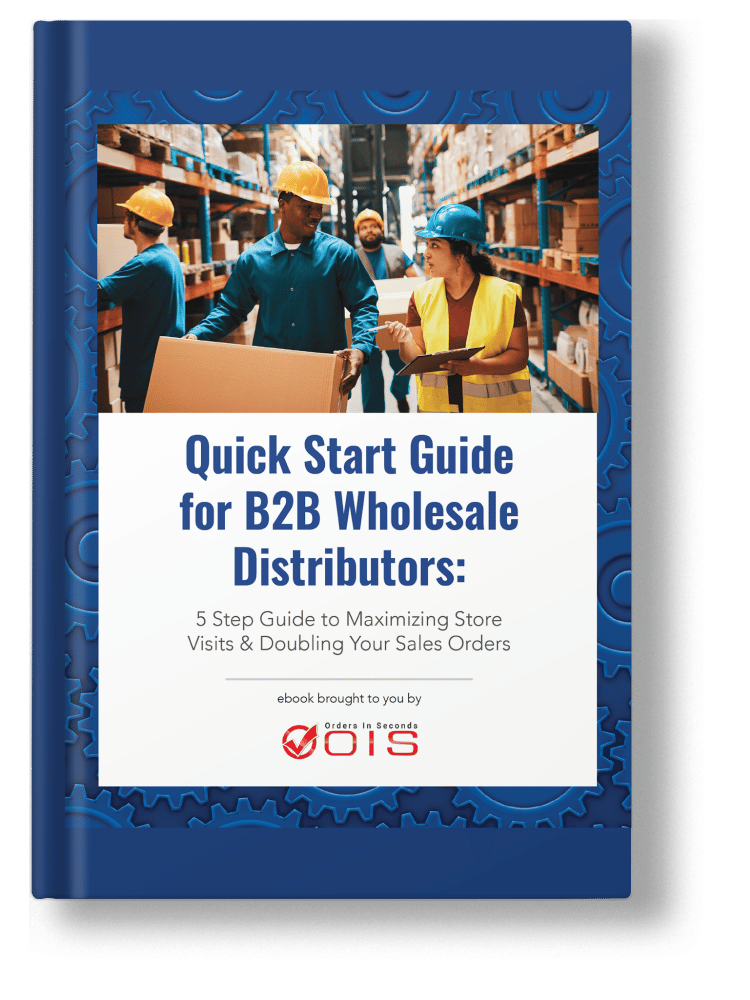Food distribution software is essential for optimizing supply chain operations, managing inventory, and ensuring food safety. This article examines its features and benefits, demonstrating how it can transform your food distribution process.
Introduction to Food Distribution Software
Food distribution software is a specialized type of distributor management system (DMS) tailored for food and beverage distributors. This software is designed to manage the intricate operations involved in food distribution, from inventory management to order fulfillment. By providing real-time visibility into the supply chain, food distribution software enables distributors to streamline their operations, enhance efficiency, and ensure compliance with industry regulations. For food and beverage distributors, this software is indispensable in maintaining a competitive edge and delivering high-quality products to their customers.
Key Takeaways
- Food distribution software enhances operational efficiency through robust inventory management, real-time tracking, and centralized data solutions, reducing waste and ensuring product quality.
- Traceability and compliance features are essential for maintaining food safety, allowing for quick identification of contamination sources and effective product recalls.
- Integration with eCommerce and EDI systems streamlines order processing and communication across the supply chain, enabling food distributors to meet customer demands and improve operational efficiency.
Table of Contents
- Key Features of Food Distribution Software
- Benefits of Using Food Distribution Software for Food Distributors
- Enhancing Inventory Management for Food Distributors
- Ensuring Food Safety and Compliance
- Food Traceability and Lot Tracking
- Advanced Order Management Solutions
- Integration with eCommerce and EDI Systems
- Optimizing Supply Chain Operations
- Leveraging DMS Software for Food and Beverage Distributors
- Product Recall and Safety Management
- Choosing the Right Food Distribution Software
- Case Studies of Successful Food Distributors
- Summary
- Frequently Asked Questions
- Simplify Food Distribution with Solutions Tailored to Your Needs
Key Features of Food Distribution Software

Food distribution software offers a suite of features designed to streamline operations and improve efficiency. One of the most crucial aspects is robust inventory management. This software provides real-time updates on stock counts, ensuring that food distributors can track their inventory accurately and manage storage conditions to maintain product quality. This capability is vital in preventing spoilage and ensuring that food products reach consumers in optimal condition.
Cloud-based solutions have revolutionized the food distribution industry by allowing for centralized data management. These solutions ensure that all stakeholders have access to the latest information, regardless of their location. This centralization not only improves communication but also enhances decision-making processes, enabling distributors to respond swiftly to changes in supply and demand.
Effective inventory control is another key feature of food distribution software. Preventing spoilage and managing supplies efficiently helps distributors reduce waste and improve profitability. This level of control is essential for maintaining the delicate balance between having enough stock to meet demand and minimizing excess inventory that could lead to losses.
Additionally, the software includes return merchandise authorization (RMA) features, facilitating efficient management of customer returns and ensuring accurate inventory tracking.
Benefits of Using Food Distribution Software for Food Distributors
Using food distribution software offers numerous advantages for food distributors, significantly enhancing their operational capabilities:
Improved Inventory Management: The software helps manage inventory levels efficiently, track expiration dates, and prevent stockouts, ensuring that food products are always available and fresh.
Enhanced Order Management: Streamlining order processing reduces errors and improves customer satisfaction, making the entire order fulfillment process more efficient.
Increased Efficiency: Automation of routine tasks and workflows reduces the need for manual labor, thereby increasing productivity and allowing staff to focus on more strategic activities.
Better Supply Chain Visibility: Real-time tracking and monitoring of inventory and shipments enable food distributors to make informed decisions, optimizing the entire supply chain.
Improved Food Safety: The software helps track and manage food safety certifications, recalls, and compliance with regulations, ensuring that all food products meet the highest safety standards.
Increased Profitability: By reducing waste, improving inventory management, and streamlining operations, food distributors can significantly increase their profitability, ensuring long-term business success.
Enhancing Inventory Management for Food Distributors
Inventory management is the backbone of any successful food distribution operation. Real-time inventory tracking is paramount for food and beverage distributors. Food distribution software tracks inventory from its entry into the system to customer delivery, ensuring a complete history of each product’s journey. This end-to-end visibility helps distributors maintain control over their stock and respond quickly to any issues that arise.
Barcode scanning upon product arrival simplifies the logging of information and enhances inventory accuracy. This automation reduces the chance of human error and speeds up the inventory management process. Efficient handling of customer returns is also crucial, as it helps maintain inventory accuracy and enhances customer satisfaction. Additionally, expiration date tracking ensures adherence to first-expiry, first-out practices, minimizing waste and enhancing customer satisfaction.
Modern inventory management systems also utilize AI-driven demand forecasting to maintain optimal inventory levels. Predicting future demand based on historical data and market trends allows distributors to reduce waste and enhance cash flow. IoT sensors and RFID technology further enable real-time tracking of products, providing additional layers of accuracy and control.
Unified inventory systems allow food distributors to maintain real-time inventory counts across all locations. Centralization ensures all parts of the supply chain work with the same data, reducing discrepancies and improving overall efficiency. Automatic reorder point calculations further enhance inventory management by generating purchase orders proactively, helping to manage stock levels effectively.
Ultimately, these tools and technologies empower food distributors to manage their inventory more effectively, ensuring that they can meet customer demand while minimizing waste and maximizing profitability.
Ensuring Food Safety and Compliance

Food safety and compliance are non-negotiable in the food and beverage industry. Effective DMS software for food distributors provides comprehensive bi-directional traceability to ensure food safety and quickly identify sources of contamination. This traceability allows businesses to monitor products from production to distribution, ensuring safety and compliance with regulations.
For food manufacturers, these traceability features are essential in ensuring compliance with safety regulations and preventing incidents of food poisoning.
Traceability features in food distribution software enable companies to manage product recalls swiftly and effectively, protecting consumer health. Providing detailed information on the origin and handling of food products enhances transparency and accountability. Automated compliance documentation further simplifies adherence to safety regulations, reducing the risk of legal actions related to non-compliance.
Quality control features, including real-time monitoring, help businesses maintain product integrity and reduce the risk of foodborne illnesses. Using FIFO (First In, First Out) methods ensures older stock is delivered first, maximizing freshness and reducing waste. Investing in traceability software can lead to a significant decrease in foodborne disease outbreaks, enhancing overall food safety.

Avoid the Top 5 Mistakes Wholesale Distributors Make
Are you making one of the top 5 mistakes that plague wholesale distributors? Download our free eBook to find out. We’ve also included tips and guidance to help you save time and avoid costly mistakes.
Food traceability and lot tracking are essential components of food distribution software, providing critical insights into the movement of food products throughout the supply chain. Lot tracking allows food distributors to monitor each batch of products from production to delivery, ensuring complete traceability. This feature is vital for maintaining food safety, complying with regulations, and managing recalls effectively. By leveraging lot tracking capabilities, food distributors can prevent foodborne illnesses, reduce food waste, and enhance overall supply chain efficiency, ensuring that consumers receive safe and high-quality products.
Advanced Order Management Solutions
Advanced order management solutions are critical for food distributors aiming to streamline their operations. Food distribution software enhances order tracking by providing better visibility and control over product movement, minimizing errors during fulfillment. This visibility ensures that distributors can monitor the status of orders in real time and address any issues promptly.
Real-time data access is another significant advantage of advanced software. Access to up-to-date information allows businesses to identify supply chain bottlenecks and make informed operational decisions. This capability supports better decision-making and operational efficiency, ensuring that food distributors can meet customer expectations consistently. The software also allows for the initiation of a bill of materials directly from a sales order, ensuring that customer information is accurately logged and sent to the finance department for invoicing.
Automation features in food distribution software further streamline tasks like order fulfillment and warehouse management. Reducing human errors and improving processing speed enhances overall efficiency and accuracy. This automation allows food distributors to focus more on strategic activities, such as improving customer relationships and expanding their market reach.
Integration with eCommerce and EDI Systems
Integrating with eCommerce and EDI systems is essential for modern food distributors aiming to enhance operational efficiency. Electronic Data Interchange (EDI) systems automate the exchange of essential documents like purchase orders and invoices, significantly speeding up processes and reducing manual data entry errors. This automation facilitates quicker order processing, allowing distributors to handle larger volumes of transactions seamlessly.
Many large retailers mandate EDI compliance from suppliers to ensure seamless transactional workflows. Implementing EDI improves communication and data sharing across the supply chain, fostering better relationships with partners. This improved communication leads to more efficient operations and helps distributors meet the demands of their customers more effectively.
Optimizing Supply Chain Operations

Optimizing supply chain operations is vital for food distributors to remain competitive and efficient. Demand planning and forecasting features in food distribution software help align purchasing with market demand, considering factors like seasonality and consumer trends. This alignment ensures that distributors can meet customer needs while minimizing excess inventory.
Total supply chain visibility is critical, enabling food distributors to track goods’ locations and conditions throughout the supply chain in real time. DMS systems enhance this visibility, allowing companies to optimize various business processes, including sales, purchasing, and logistics. Improved communication and data sharing through EDI systems further enhance supply chain efficiency.
Real-world examples highlight the benefits of optimizing supply chain operations. Metro Turkey improved its marketing efficacy using predictive analytics to identify growth opportunities and minimize customer loss. Similarly, a foodservice distributor in the U.S. improved its revenue by $20 million by fostering strong sales relationships and leveraging data analytics. These examples show how data-driven strategies can significantly improve operational efficiency and profitability.
Leveraging DMS Software for Food and Beverage Distributors

DMS software plays a crucial role in transforming operational data into strategic insights for food and beverage distributors. Analyzing data with DMS systems helps businesses make informed decisions that drive growth and efficiency. A global foodservice distributor increased its profit margins by 134 basis points through implementing a structured pricing framework.
Additionally, broadline foodservice food distributor can optimize contract pricing strategies to adapt to fluctuating food costs. This adaptability ensures that distributors can maintain profitability even in volatile market conditions.
Overall, leveraging DMS software enables food and beverage distributors to enhance their operational efficiency and achieve better business outcomes.
Product Recall and Safety Management
Product recall and safety management are crucial aspects of food distribution software, designed to protect both consumers and the brand reputation of food distributors. The software facilitates the management of product recalls by tracking affected products and notifying customers and regulatory agencies promptly. Additionally, it helps food distributors maintain and manage food safety certifications, such as HACCP and SQF, ensuring compliance with industry regulations. By using food distribution software, food distributors can ensure the safety of their products, swiftly address any issues that arise, and maintain consumer trust and confidence in their brand.
Choosing the Right Food Distribution Software
Selecting the right food distribution software is a critical decision for food distributors, requiring careful consideration of several factors:
Industry Expertise: Choose software providers with extensive experience in the food and beverage industry, as they will better understand the unique challenges and requirements of your business.
Functionality: Ensure the software meets your specific needs, including robust inventory management, efficient order management, and comprehensive lot tracking capabilities.
Scalability: Opt for software that can grow with your business, accommodating increased volumes and expanding operations without compromising performance.
Integration: Verify that the software integrates seamlessly with your existing systems, such as accounting and e-commerce platforms, to ensure a smooth and efficient workflow.
Support: Look for software providers that offer excellent customer support and comprehensive training, ensuring that your team can effectively utilize the software.
Compliance: Ensure the software meets all regulatory requirements, such as FDA and USDA regulations, to maintain compliance and avoid potential legal issues.
By considering these factors, food distributors can select the right food distribution software to streamline their operations, improve efficiency, and ensure compliance with industry regulations, ultimately driving better business outcomes.
Case Studies of Successful Food Distributors

Real-world examples provide valuable insights into the benefits of food distribution software. For instance, SOS Inventory helps food distributors analyze data for a clear picture of their business, identify problems, and formulate solutions. This analytical capability ensures that distributors can address issues proactively and improve their overall operations.
Another example is a foodservice distributor in the U.S. that improved its revenue by $20 million through strong sales relationships and data analytics.
These case studies highlight the tangible benefits of using advanced software solutions in the food and beverage industry, demonstrating how technology can drive success and growth.
Summary
In summary, advanced food distribution software offers a range of features that enhance inventory management, ensure food safety and compliance, and provide advanced order management solutions. Integrating with eCommerce and EDI systems further improves operational efficiency, while optimizing supply chain operations and leveraging DMS software drive strategic business decisions.
By adopting these technologies, food and beverage distributors can improve their operational efficiency, reduce waste, and achieve better business outcomes. The case studies of successful distributors underscore the real-world benefits of these solutions, inspiring others to follow suit.
Frequently Asked Questions
-
1. What are the key features of food distribution software?
The key features of food distribution software include robust inventory management to track stock levels, cloud-based data management for real-time access, and effective inventory control mechanisms to minimize spoilage.
-
2. How does food distribution software enhance inventory management?
Food distribution software enhances inventory management by accurately tracking inventory from entry to delivery, employing barcode scanning, and utilizing AI-driven demand forecasting alongside expiration date tracking. This ensures efficient inventory control and minimizes waste.
-
3. Why is food safety and compliance important in food distribution?
Food safety and compliance are crucial in food distribution as they mitigate the risk of foodborne illnesses and legal repercussions while also ensuring product integrity through effective traceability and quality control. Ultimately, prioritizing these aspects protects public health and maintains consumer trust.
-
4. What are the benefits of integrating with eCommerce and EDI systems?
Integrating with eCommerce and EDI systems significantly streamlines operations by automating document exchange and reducing data entry errors. This results in faster order processing and enhanced workflow efficiency.
-
5. How can DMS software benefit food and beverage distributors?
DMS software significantly enhances food and beverage distributors by transforming operational data into strategic insights, which enables the optimization of pricing strategies, improvement of profitability, and enhancement of operational efficiency.
Simplify Food Distribution with Solutions Tailored to Your Needs
Streamline your food and beverage distribution operations with Orders in Seconds. Our solutions are thoughtfully tailored to the unique challenges faced by food and beverage distributors, helping you manage everyday tasks like order fulfillment, inventory tracking, and supply chain visibility with ease. Simplify your workflow, reduce errors, and stay focused on growing your business.
Ready to take your distribution efficiency to the next level? Let’s get started!






